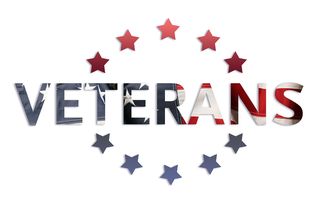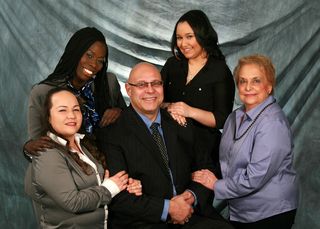House Bill 4351 should be stopped!
For the past several years, bills have been introduced for Congressional approval that would impose a three-year look back, and penalties up to 10 years, for veterans and their spouses who give away their assets and then apply for a pension program designed for indigent wartime veterans. The bills were limited to addressing the concerns of deliberate impoverishment by veterans with the help of lawyers, financial advisors, and others. The bills never passed.
 In January 2015, the Veterans Administration published proposed changes to the laws in the Federal Register that would change Title 38 of the Code of Federal Regulations. The VA included penalties for transfers of assets, and used very broad definitions of transfers (i.e. the purchase of an annuity), just like the previous bills that had been introduced. However, the VA went much further, proposing to (1) extend beyond its Congressional authority and (2) extend beyond the scope of the perceived needed changes.
In January 2015, the Veterans Administration published proposed changes to the laws in the Federal Register that would change Title 38 of the Code of Federal Regulations. The VA included penalties for transfers of assets, and used very broad definitions of transfers (i.e. the purchase of an annuity), just like the previous bills that had been introduced. However, the VA went much further, proposing to (1) extend beyond its Congressional authority and (2) extend beyond the scope of the perceived needed changes.
Beyond VA Authority.
Under the pension program for wartime veterans, the claimant must meet an income and asset standard. With regard to income, the VA deducts from gross income all permissible medical expenses. Home healthcare is a permissible medical expense. But the VA proposed to limit the deduction to the average cost of home healthcare based on a national average set two years prior to the proposed changes, which would be $21 per hour. The law is clear that if a medical expense is deductible, then the entire amount must be deducted, and a change of this nature is in violation of the Congressional right.
Beyond the Scope
The purpose of the bills introduced into Congress and the purpose of the proposed changes to the VA regulations is to prevent people from divesting themselves of assets, which they otherwise could use for themselves to pay for care, in order to qualify for tax-free income from the VA to pay for their care. The VA exceeded the purpose of these bills when they included in the proposed changes a limitation on the lot coverage for veteran’s home place. The home place and a reasonable lot area have always been exempt by the VA when applying for pension. A reasonable lot area has always been defined as the same or similar in size to those in the same community or neighborhood. Rather than keeping the long-standing laws, the VA wants to count any property value that exceeds two acres. This makes no sense under the purpose of the law changes to keep people from divesting themselves of assets. First, a 900-square-foot condo in New York City may be worth well over $1,000,000, but it would be an exempt resource under the proposed changes. Whereas, a house sitting on five acres in south Georgia would be a countable resource, even if its value is only $150,000. Moreover, the veterans may have been living in the house for 10, 20, 30 years or more and had no intention of ever filing for the VA pension when they bought the house. Thus, the change in the law has nothing to do with the perceived abuses of people trying to save their assets and qualify for benefits.
Congress has apparently given up on trying to pass a bill that specifically details a look back and penalties for wartime veterans who give money away to qualify for the pension. After all, this is an election year and that would not look very good.
Nonetheless, a few members have found a sneaky way to get the VA’s proposed changes passed by Congress without Congress necessarily knowing what they are actually passing. House Resolution 4351, submitted in the House of Representatives on January 8, was sponsored by Rep. Matt Cartwright of Pennsylvania and co-sponsored by Rep. Sanford Bishop of Georgia, Rep. Sheila Jackson Lee of Texas and Rep. Walter Jones of North Carolina. It has been referred to the Committee on Veteran’s Affairs.
Its stated goal is “To protect individuals who are eligible for increased pension under laws administered by the Secretary of Veterans Affairs on the basis of need of regular aid and attendance from dishonest, predatory, or otherwise unlawful practices, and for other purposes.” The act would be titled, “Veterans Care Financial Protection Act of 2016.”
This sounds really good, because Congress is professing to protect veterans from financial predators. Second, the act does nothing more than mandate that the secretary of the VA work with the heads of federal agencies, states, and such experts as the secretary considers appropriate to “develop and implement Federal and State standards to protect individuals from dishonest, predatory, or otherwise unlawful practices.” The VA would then have 180 days to submit the standards to the Committee on Veterans’ Affairs of the Senate and of the House of Representatives. If this resolution passes, the VA can just hand over the proposed changes in the laws as the standards. The resolution does not say what the two committees are to do once they receive the standards from the VA.
The VA plans to finalize proposed changes (with modifications) by early summer. What is unclear is whether a passage of this “blind” resolution would immediately sanctify any changes the VA has made, or if the changes cannot take effect until after the two committees have taken some action of approval. What is clear is that advocates and veterans must once again push to make your political leaders, specifically those in the two Veterans’ Affairs committees, aware of these damaging changes that have no bearing on the purpose of the proposed changes – limiting home healthcare to an outdated national average and limiting the home place lot coverage to two acres instead of a reasonable lot for the area.
If you would like to know more about the VA Proposed 3 Year Lookback and Other Law Changes join our FREE WEBINAR on Wednesday, March 16th at 4EST. Click here to reserve your spot today.
Victoria L. Collier, Co-Founder, Lawyers with Purpose, LLC; Certified Elder Law Attorney through the National Elder Law Foundation; Fellow of the National Academy of Elder Law Attorneys; Founder and Managing Attorney of The Elder & Disability Law Firm of Victoria L. Collier, PC; Co-Founder of Veterans Advocates Group of America; Entrepreneur; Author; and nationally renowned Presenter.












